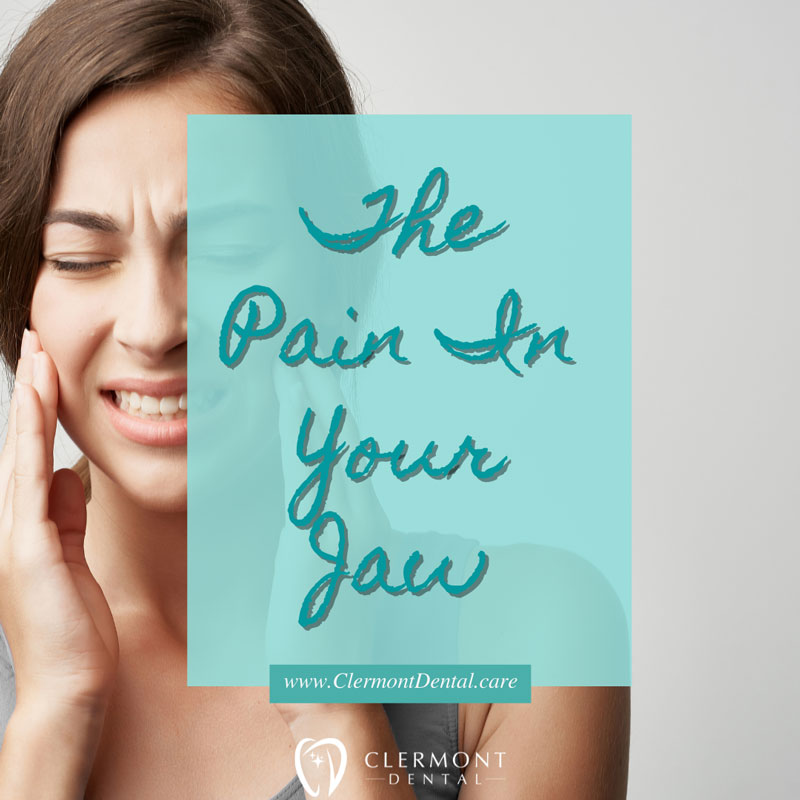Jaw pain, also known as temporomandibular joint dysfunction (TMD) or temporomandibular joint syndrome (TMJ), is a common condition that affects millions of people. According to the Oral Facial Reconstruction and Implant Center, 1 in every 12 people in the United States is currently affected by a TMJ disorder. That’s 12% of the country’s population and equals about 35 million people, showing how common jaw pain is. It is in fact, one of the most common causes of facial and tooth pain.
So why should this matter?
Despite how common jaw pain is, we cannot trivialize it. For starters, the physical pain associated with TMJ disorder involves changes in the central nervous system i.e., the brain and spinal cord. Secondly, your jaw is a dynamic, integrated system. Your teeth, muscles, joints, nerves, and more work together to perform various jaw functions. The muscles may move the jaw, but where they can move the jaw is limited by many other factors, such as the position of the joints, the shape of the teeth, and more.
TMJ occurs when there is some type of mismatch between the different components of the system. This mismatch is important to note as it conveys how TMJ disorders are complex systemic diseases with genetic and immunologic components. It is therefore imperative to take note of any pain in the face that is linked to jaw pain. Your face contains some of the most sensitive structures in your head and neck; such as the nerves, muscles, joint tissues, and bones.
Understand your Jaw
Now that we know the importance of jaw pain, we also need to know how that pain can come about.
The Jaw is like an upright hinge, that connects your skull and lower jaw. Your face muscles attach to it and they move your mouth when talking, eating, or chewing. The joint also articulates with the spinal cord, which supports its growth and development within the maturation process. When something goes wrong with our jaw’s system, it can cause pain in your ears and sinuses to extreme headaches that make you wince when you turn your head or jut out your chin.
What causes the pain in your Jaw?
Several things can cause TMD/TMJ such as injury to the jaw joints or surrounding tissues. Other causes include:
- Misaligned bite
- Crooked teeth
- Chipped, cracked, or worn teeth
- Excess stimulation of the jaw joint
- A displaced disc that usually helps cushion the movements of the jaw
- Arthritis of the protective disc that cushions the jaw joint
Further injury to the jaw joint or the muscles that control your jaw movement can also be caused by:
- Bruxism – Grinding your teeth at night
- Involuntarily clenching your jaw due to stress and anxiety
- Trauma to the jaw joint, such as getting hit in the face while playing sports
Symptoms of TMJ
- Frequent headaches
- Earaches
- Clicking, popping, or grating sounds in the jaw joint when opening or closing your mouth.
- A tired feeling in your face.
- Difficulty chewing.
- Tinnitus, or ringing in your ears.
- Changes in the way your teeth fit together.
- Swelling on the side of your face.
- Tooth pain.
Can it be treated?
TMJ isn’t something that just goes away on its own. In fact, if left untreated, TMJ can lead to serious dental issues and worse pain down the road. Your treatment is going to depend on what is causing the TMJ, whether is teeth grinding or something misaligned in your bite. This means that just one treatment could work, or you may need a series of treatments before you find that your symptoms are relieved.
Successful TMJ treatment often includes orthodontic assistance. For example, when dealing with misaligned teeth and bites that cause jaw joint problems, treatment, in this case, will most likely be Braces.
Most doctors will first recommend non-invasive treatment methods for your jaw pain. However, if you still have jaw pain after trying these methods, then you should talk to your dentist as you may need further interventions to find relief for your pain.
We can help
If you’re done with “The Pain In Your Jaw†and think you may have this disorder, come get the necessary help you need.
TMJ disorder is real and can cause serious problems in life if not treated properly. It’s important to see your favorite local Denver dentist when you feel pain in your jaw or face, to help prevent any further issues.
Our team at Clermont Dental is happy and ready to serve YOU. Schedule an appointment for a TMJ screening and find relief faster. Contact us today to get started.







